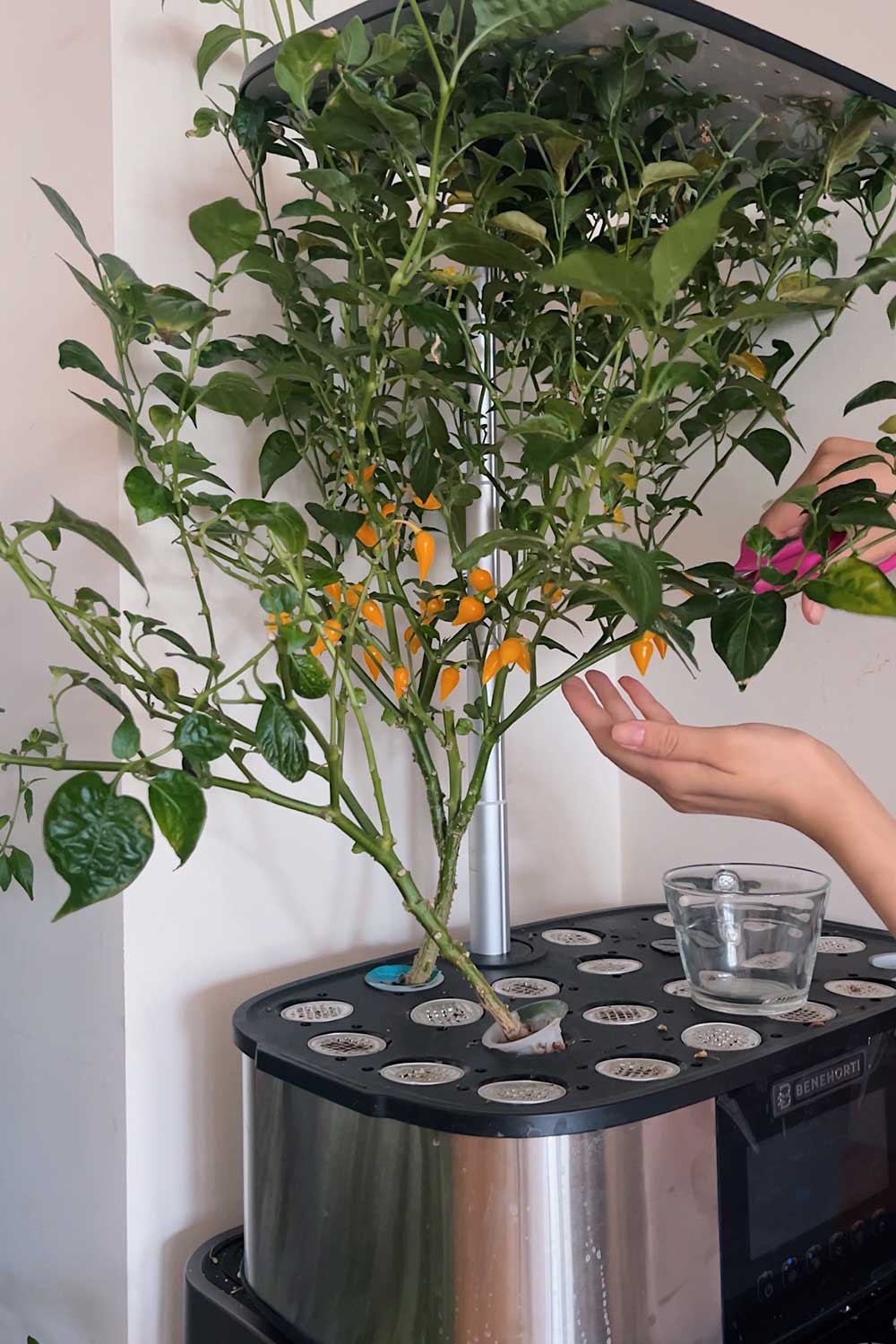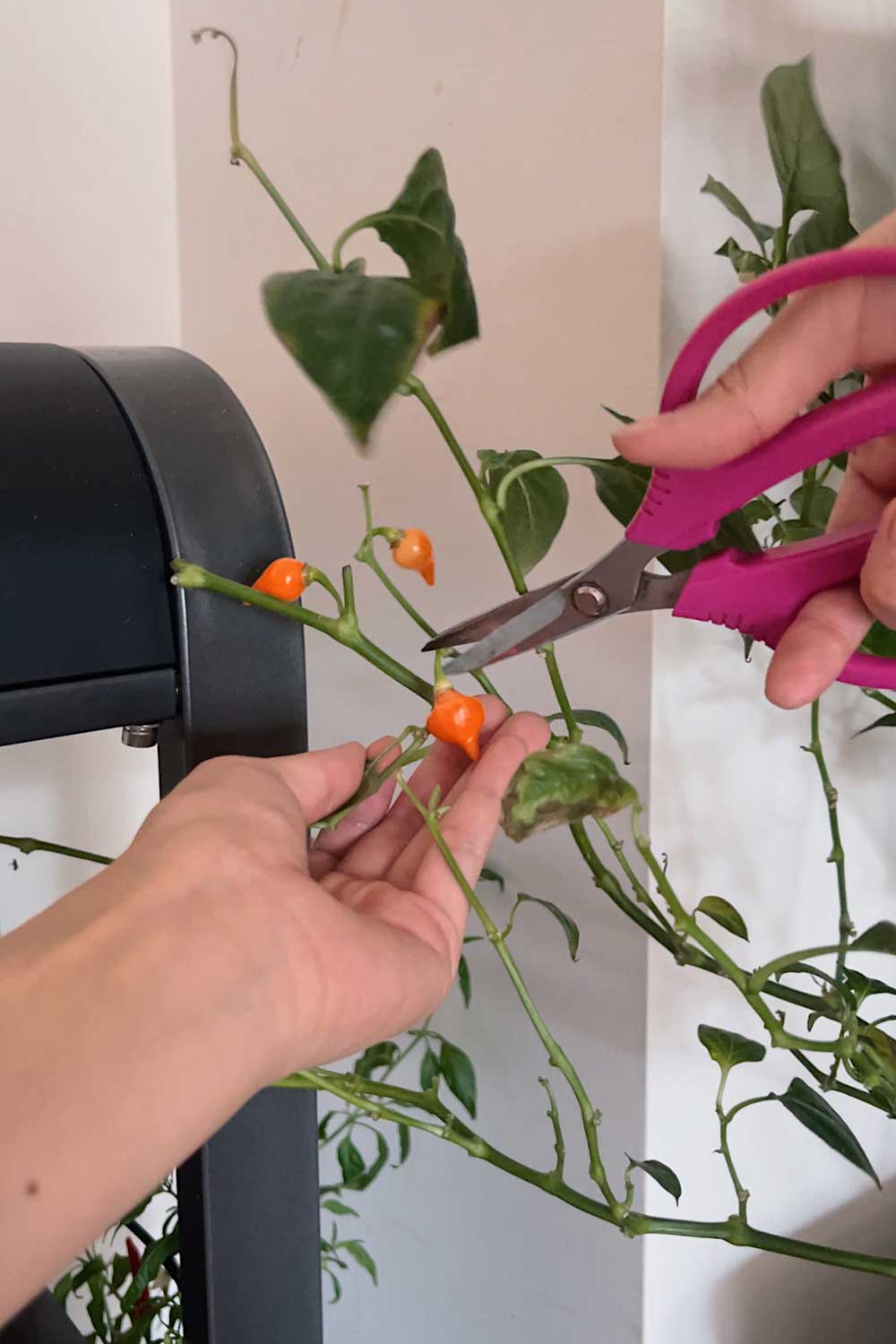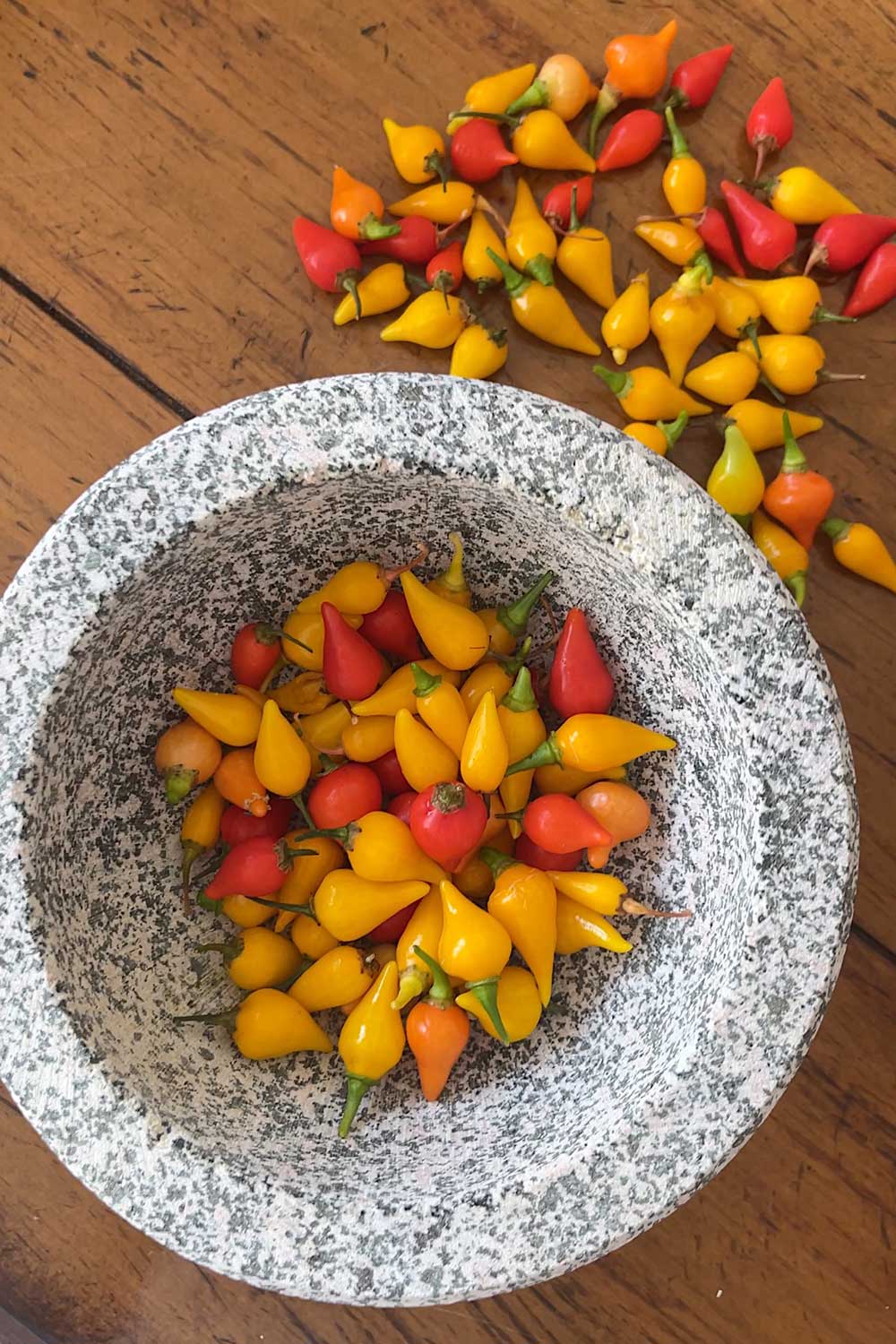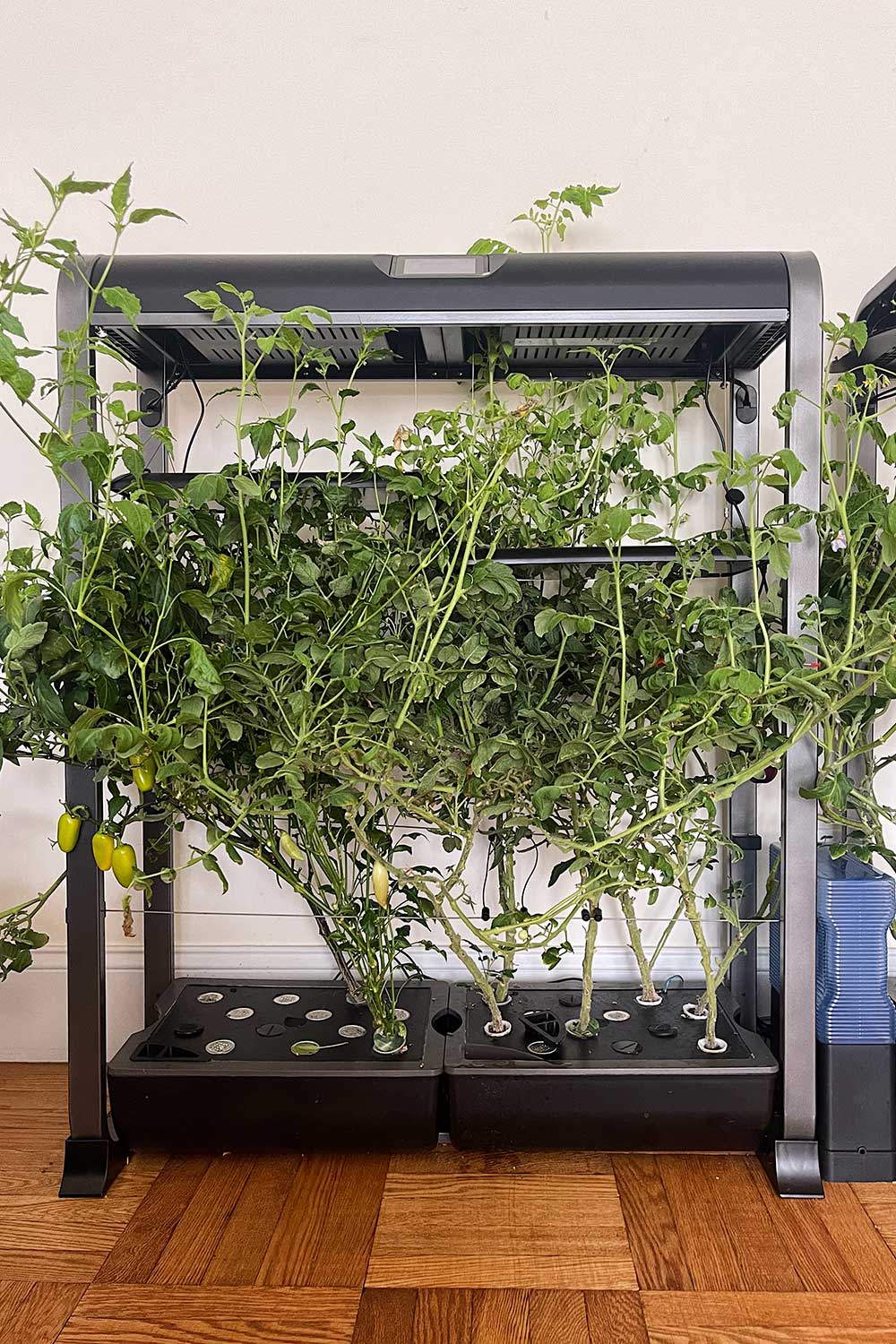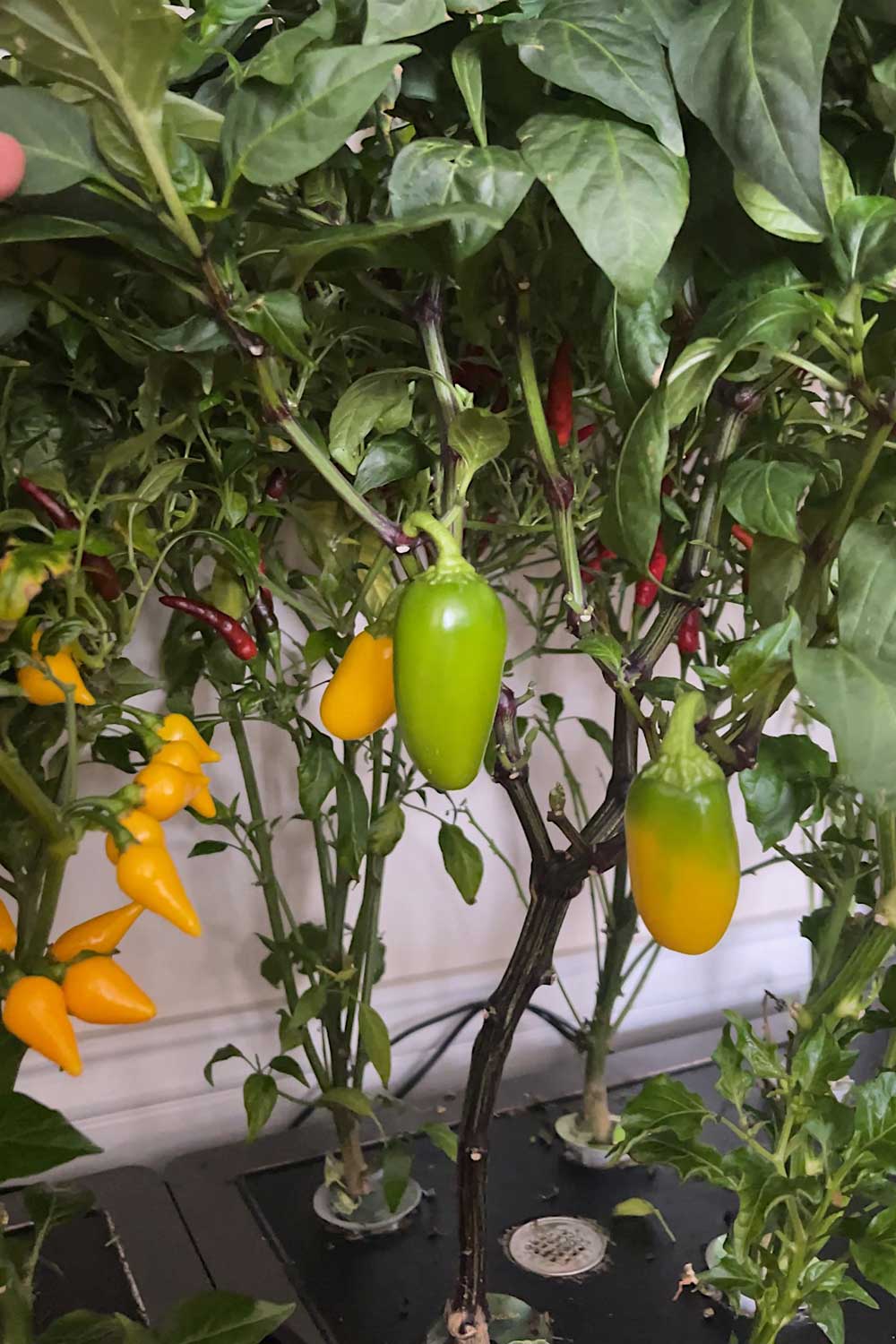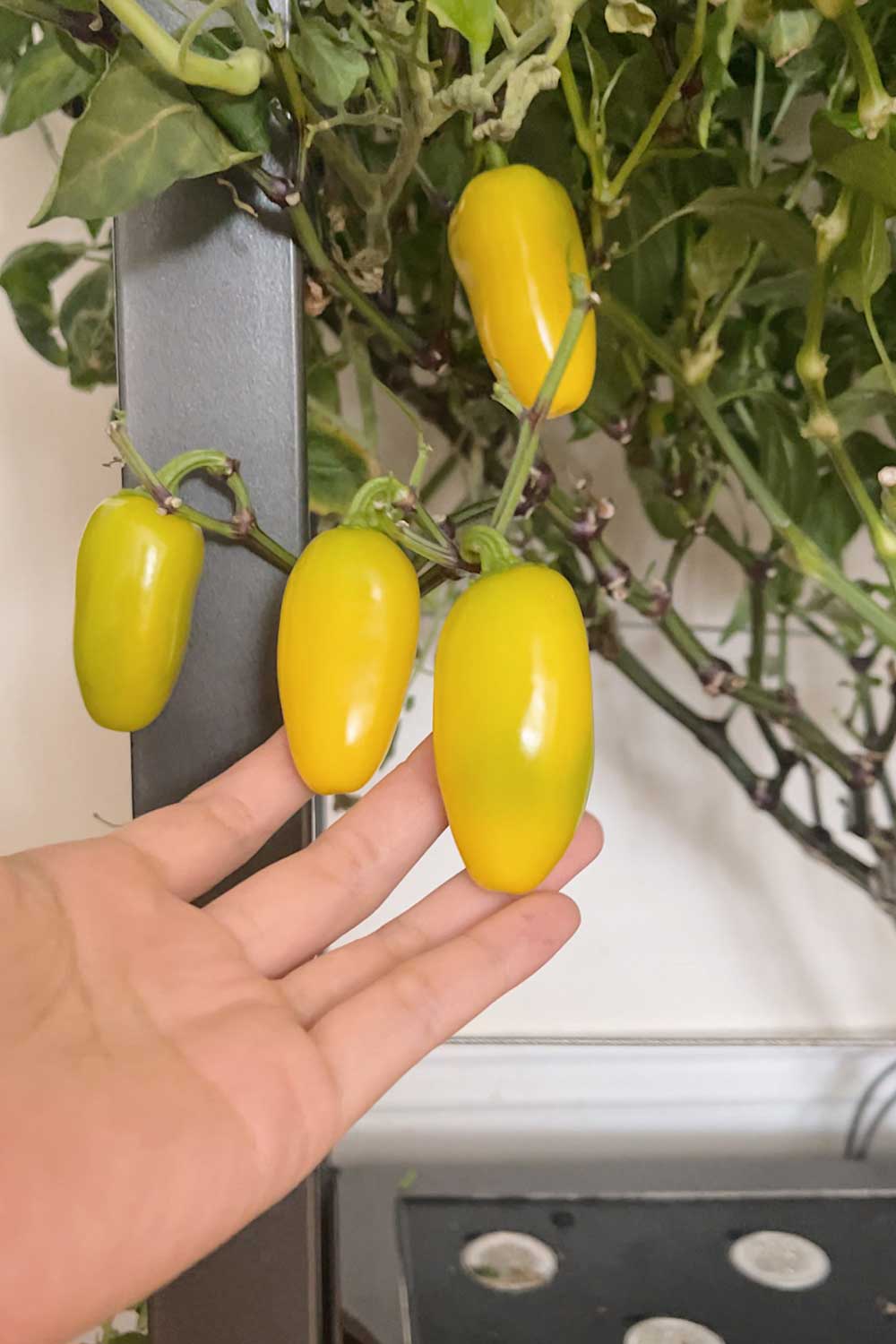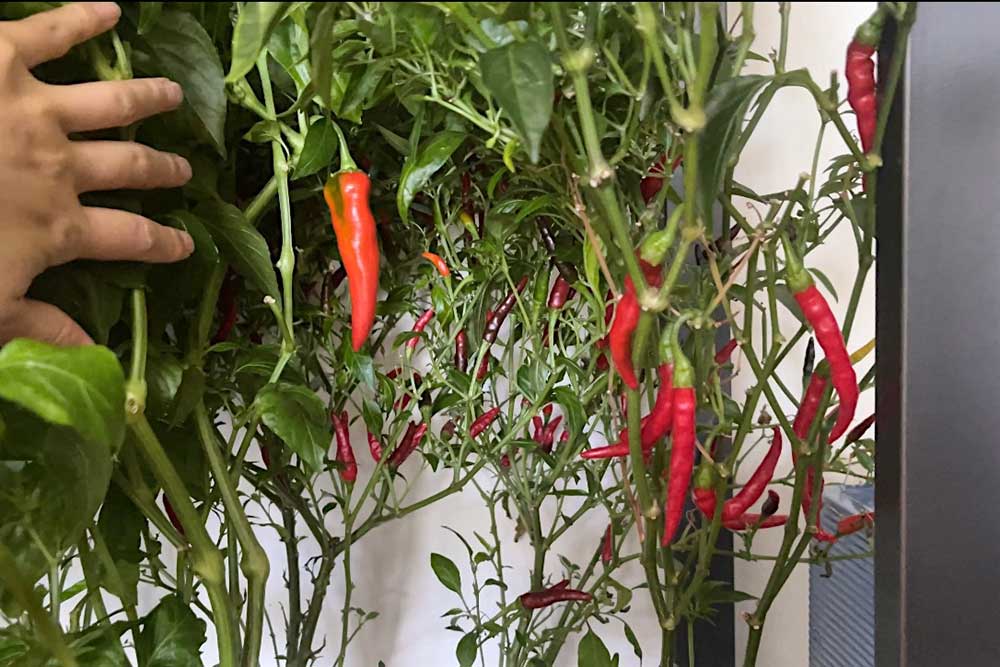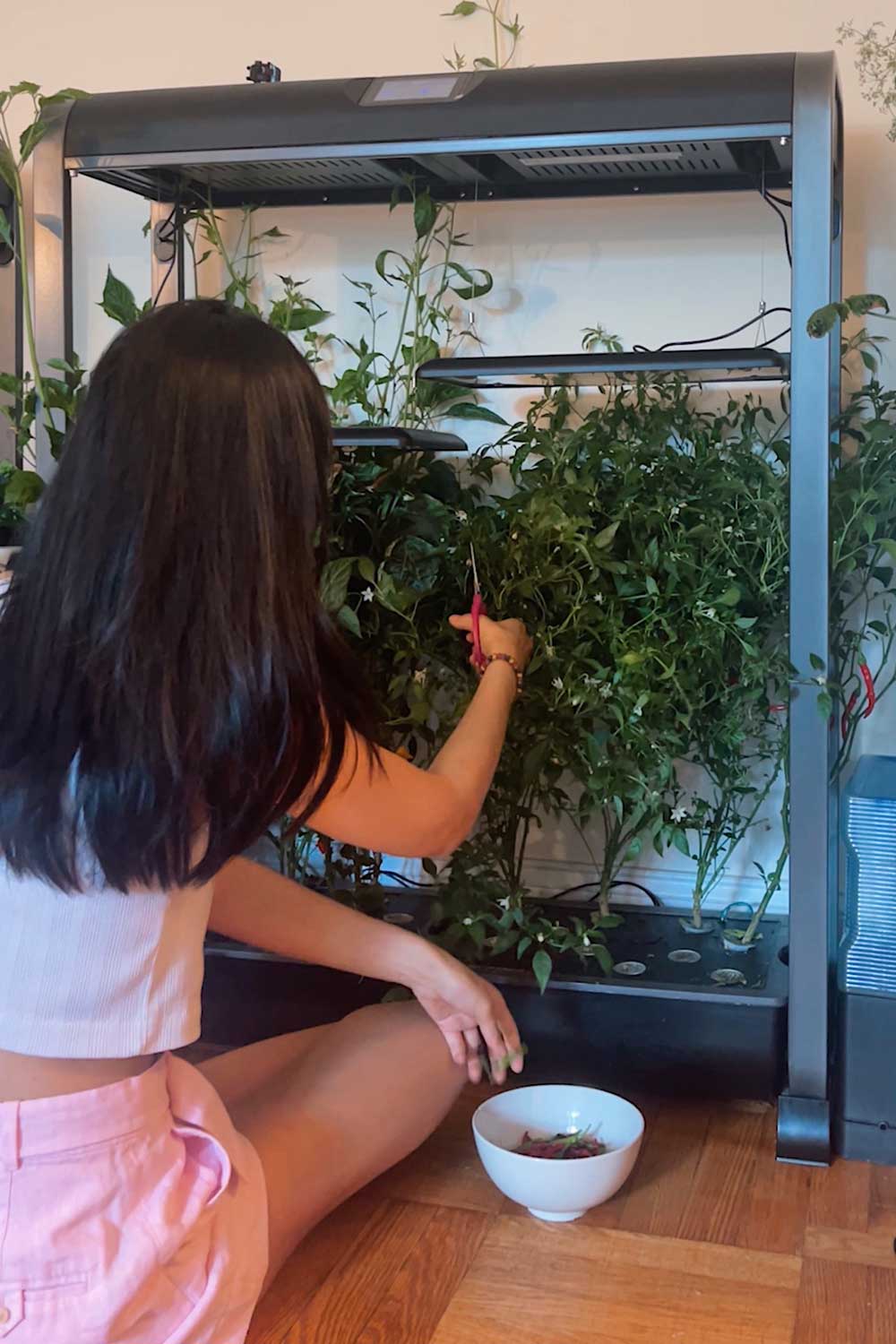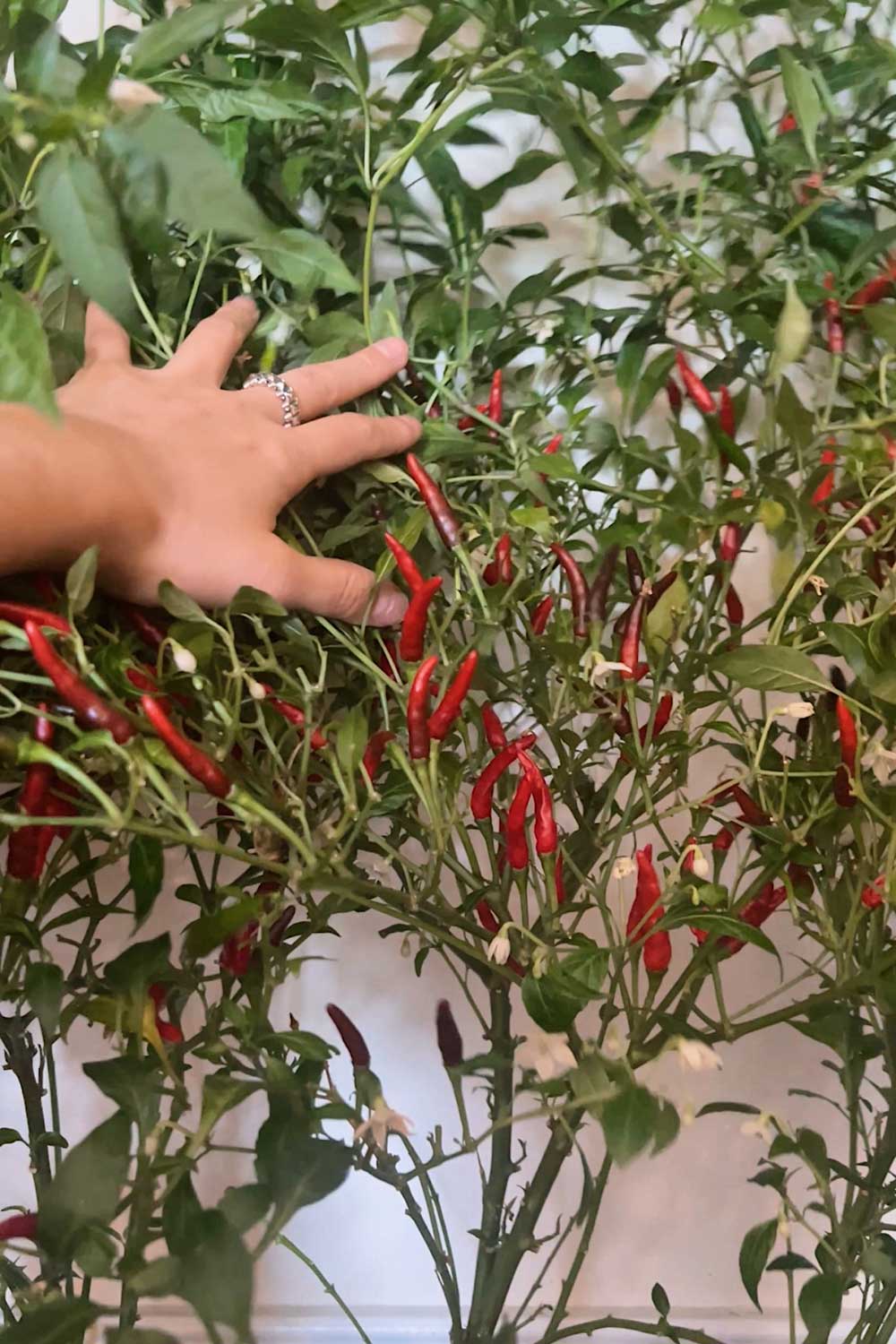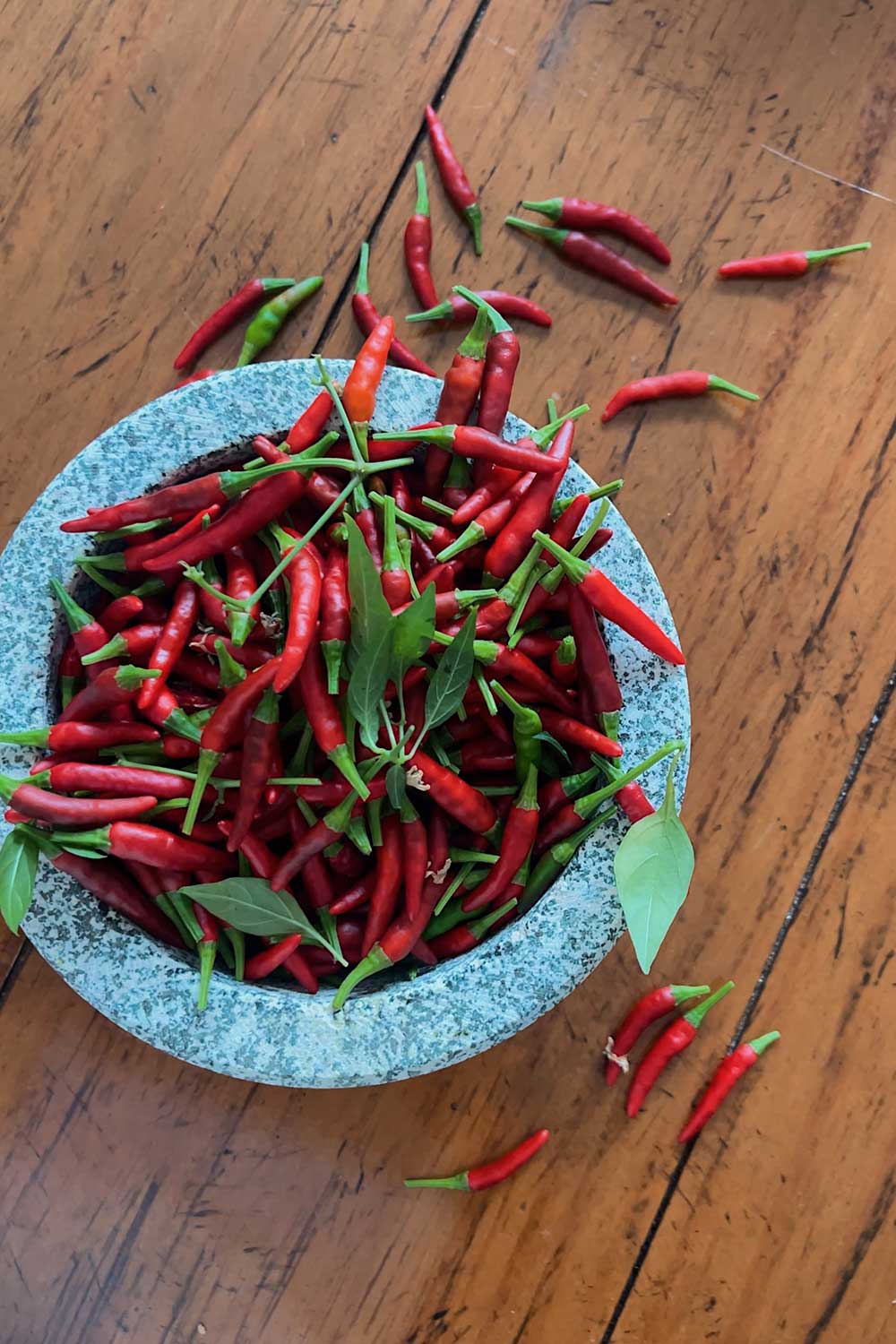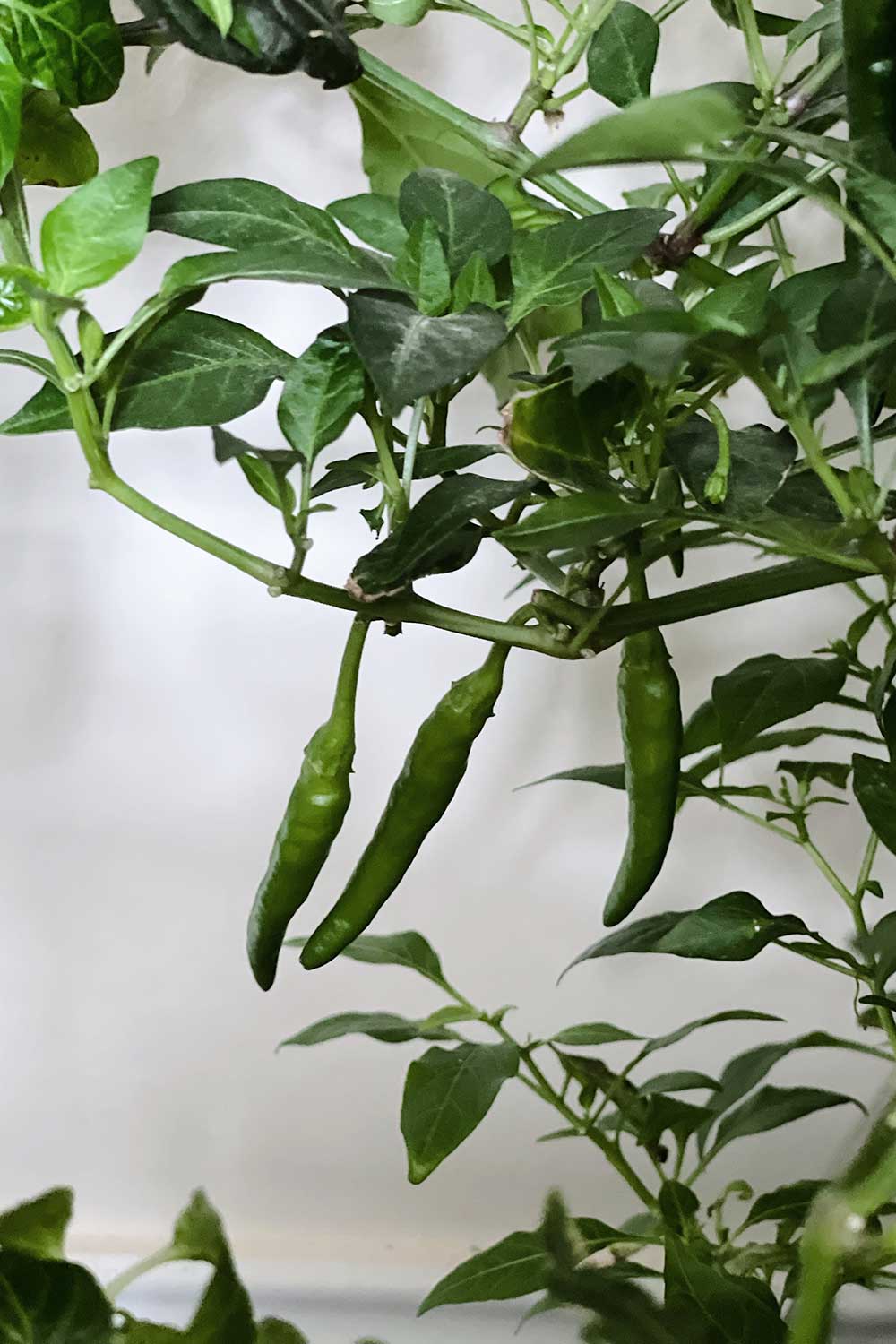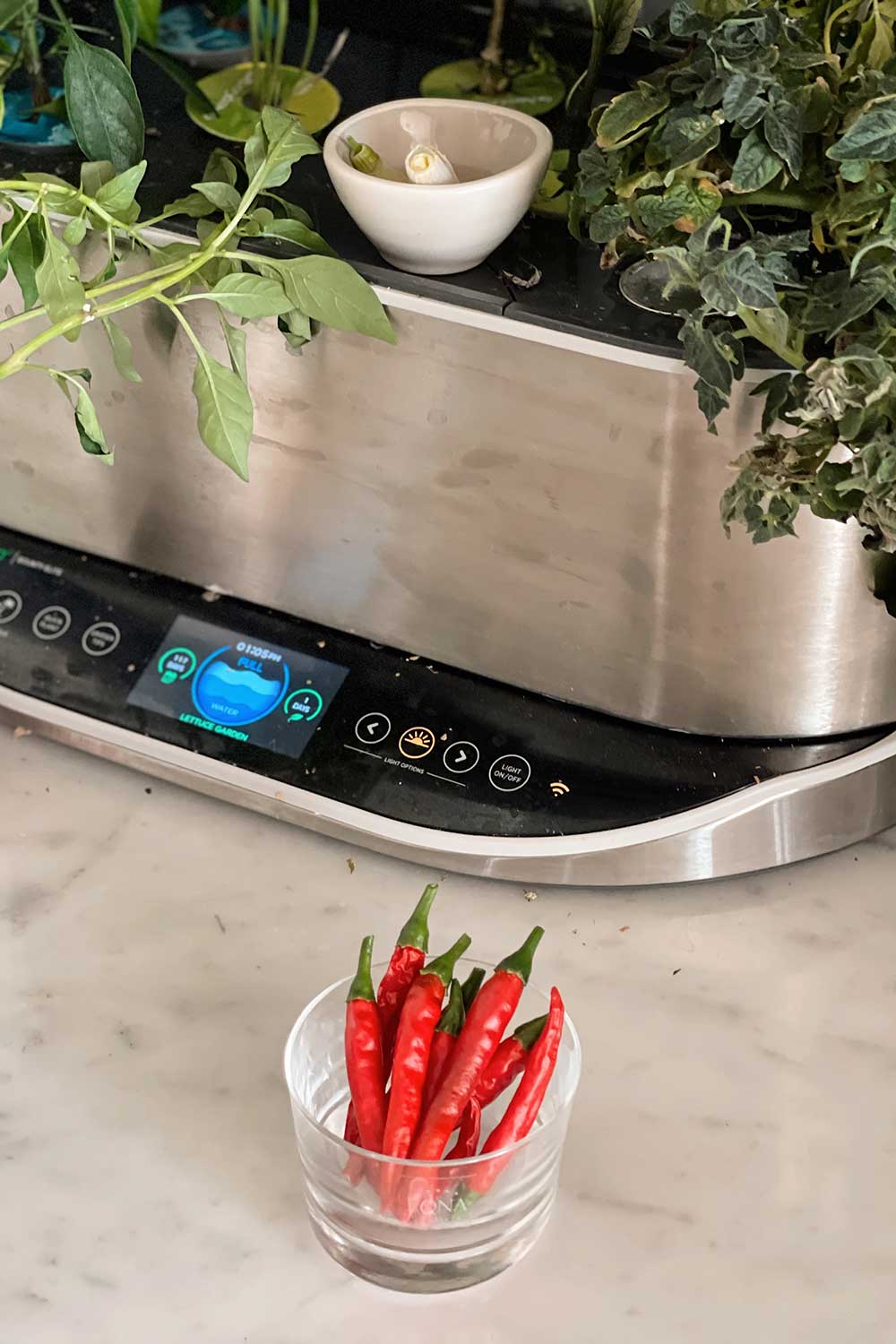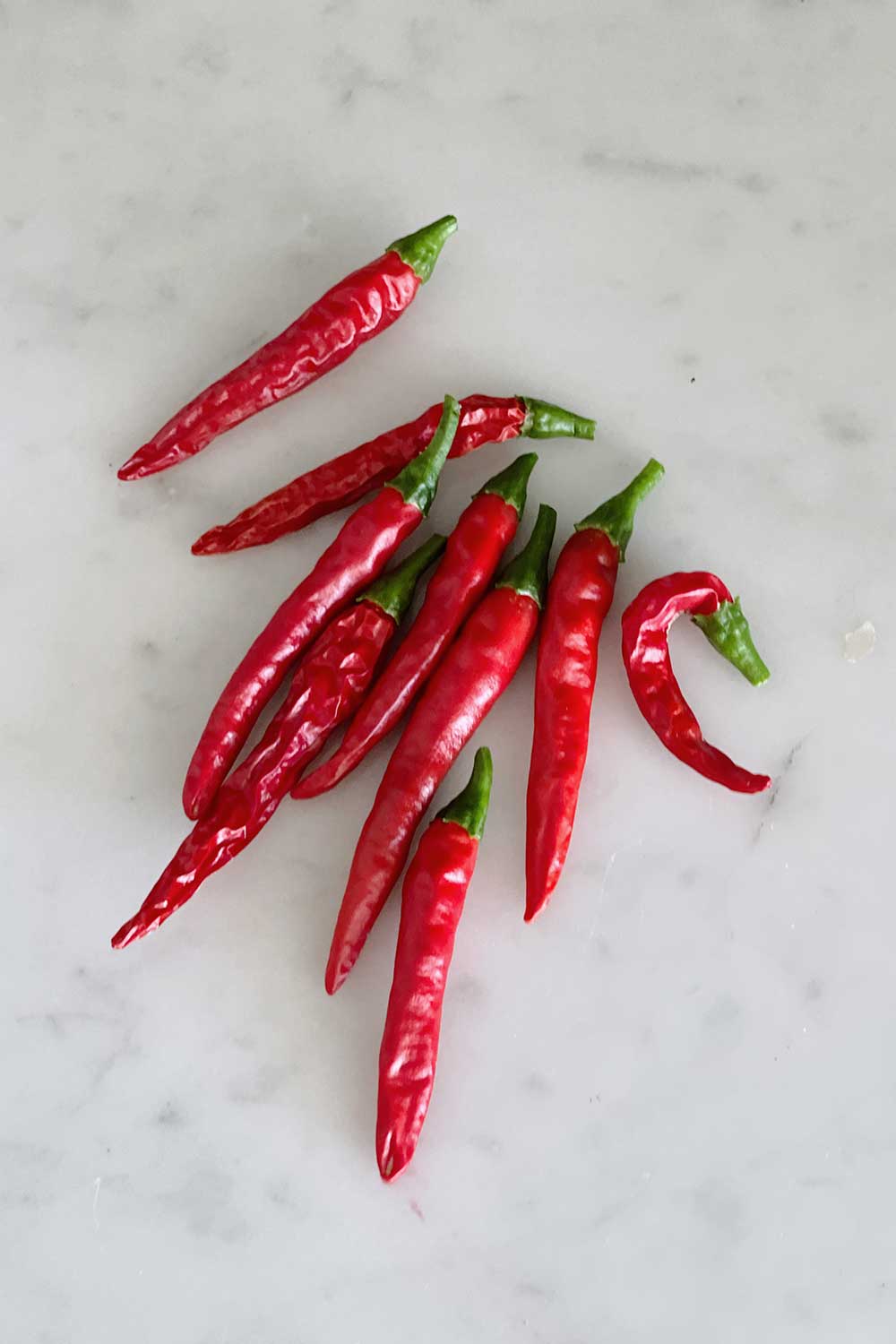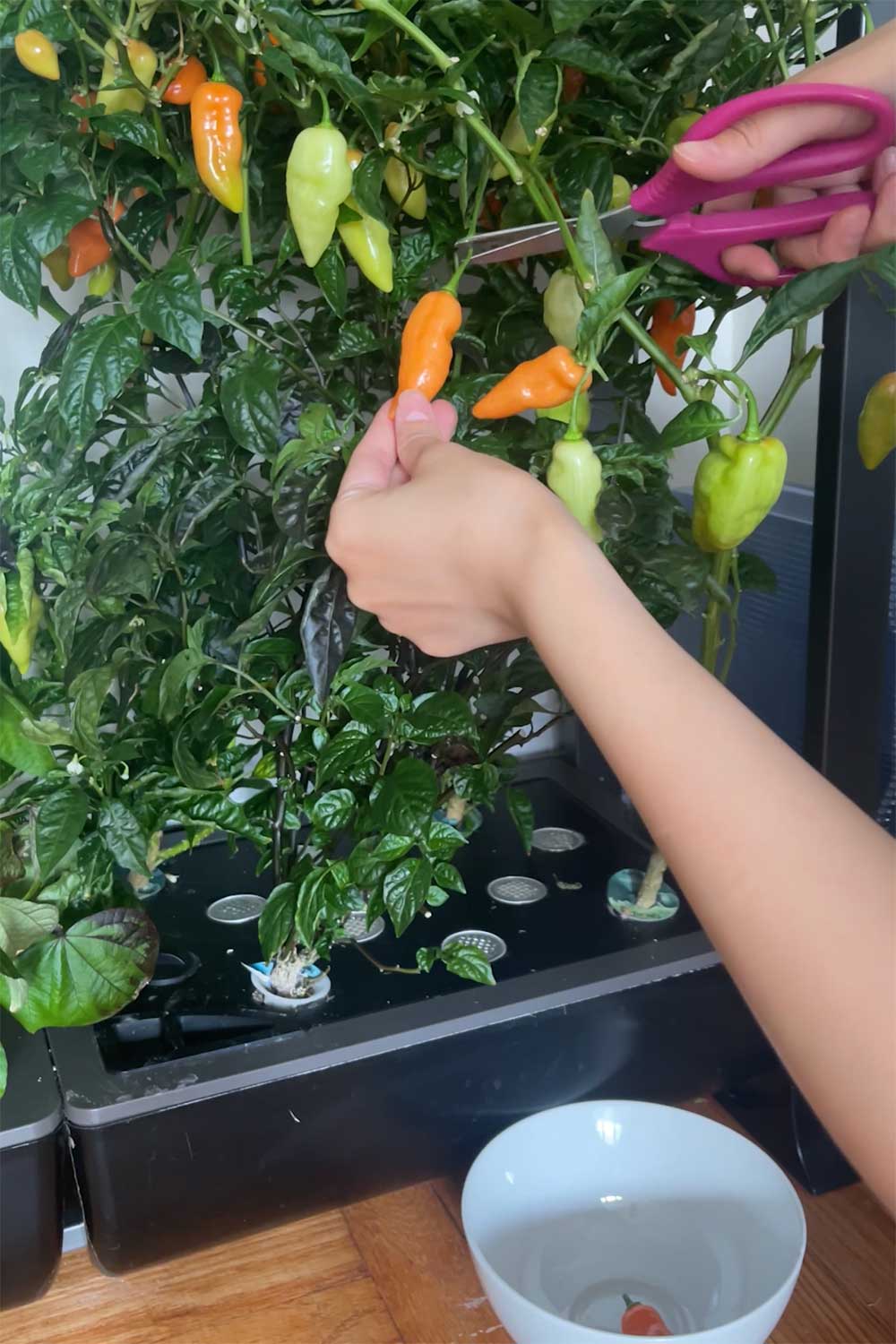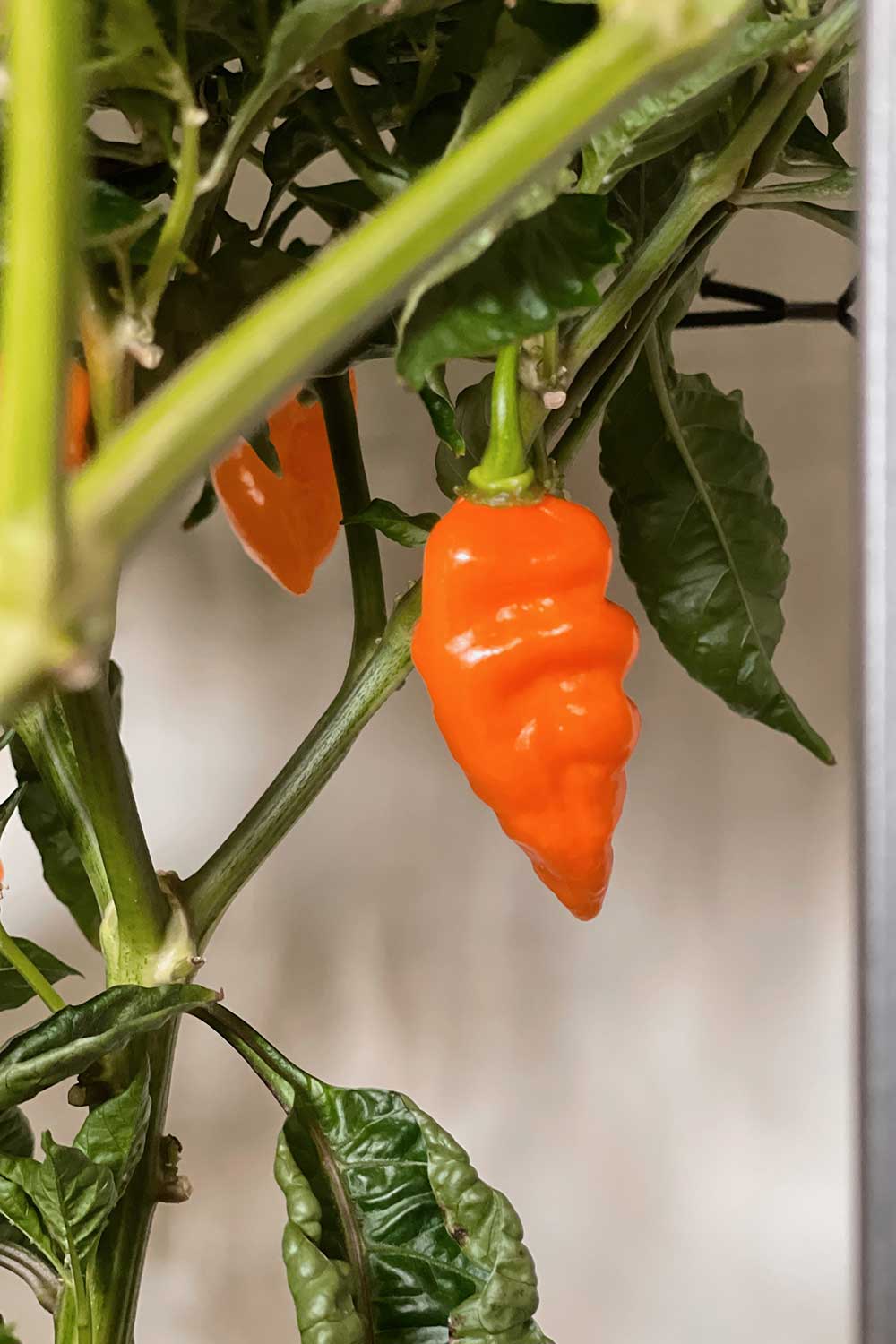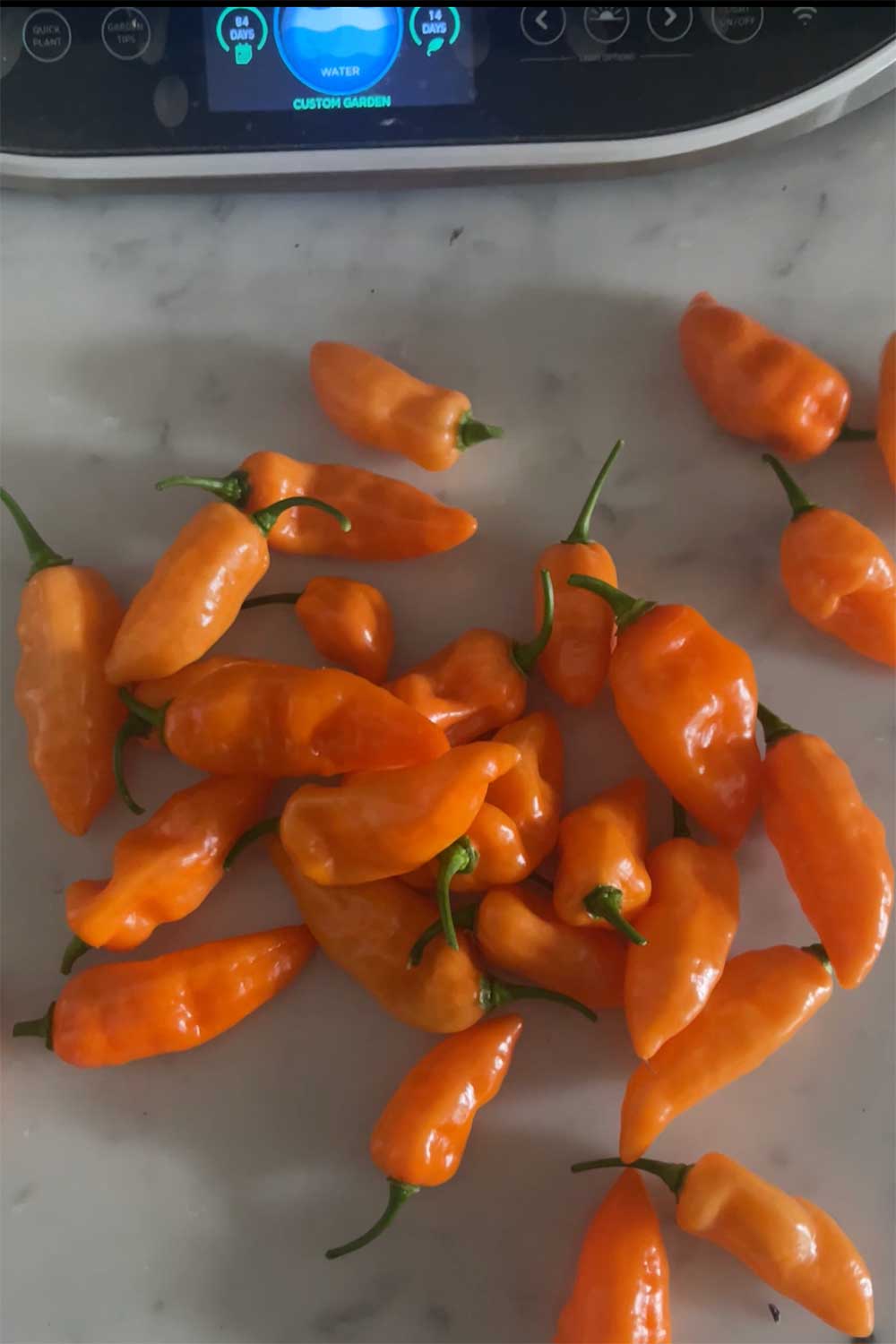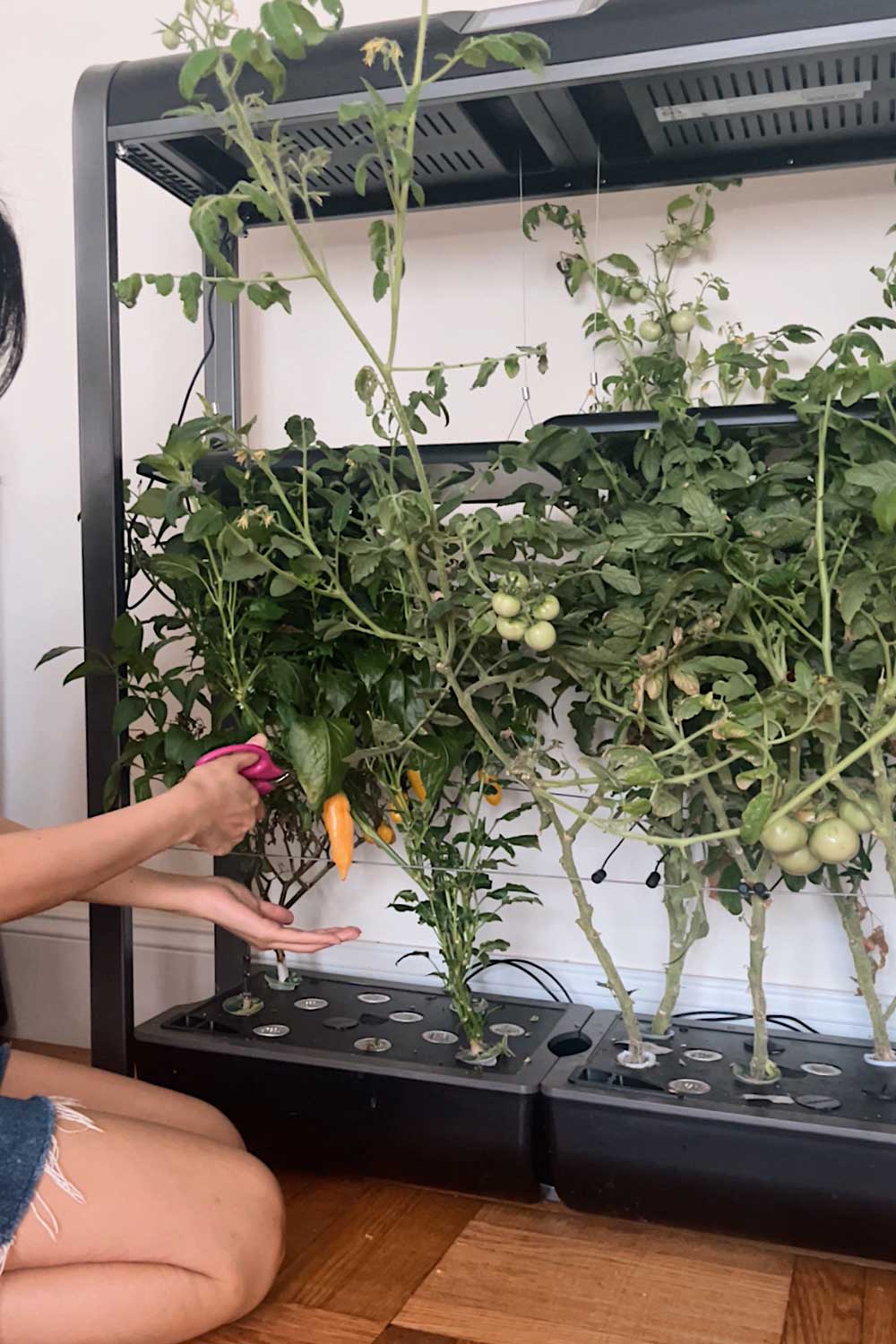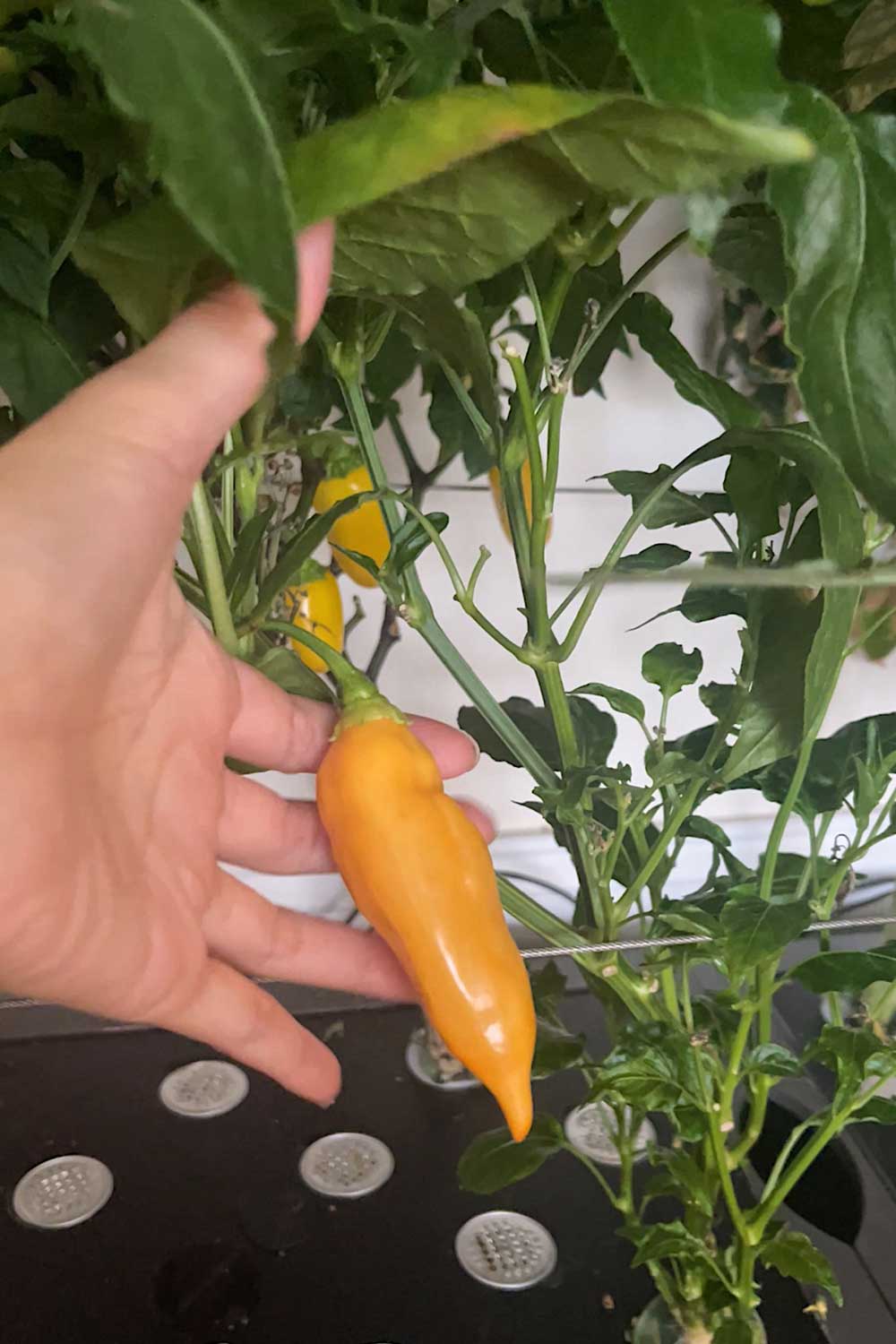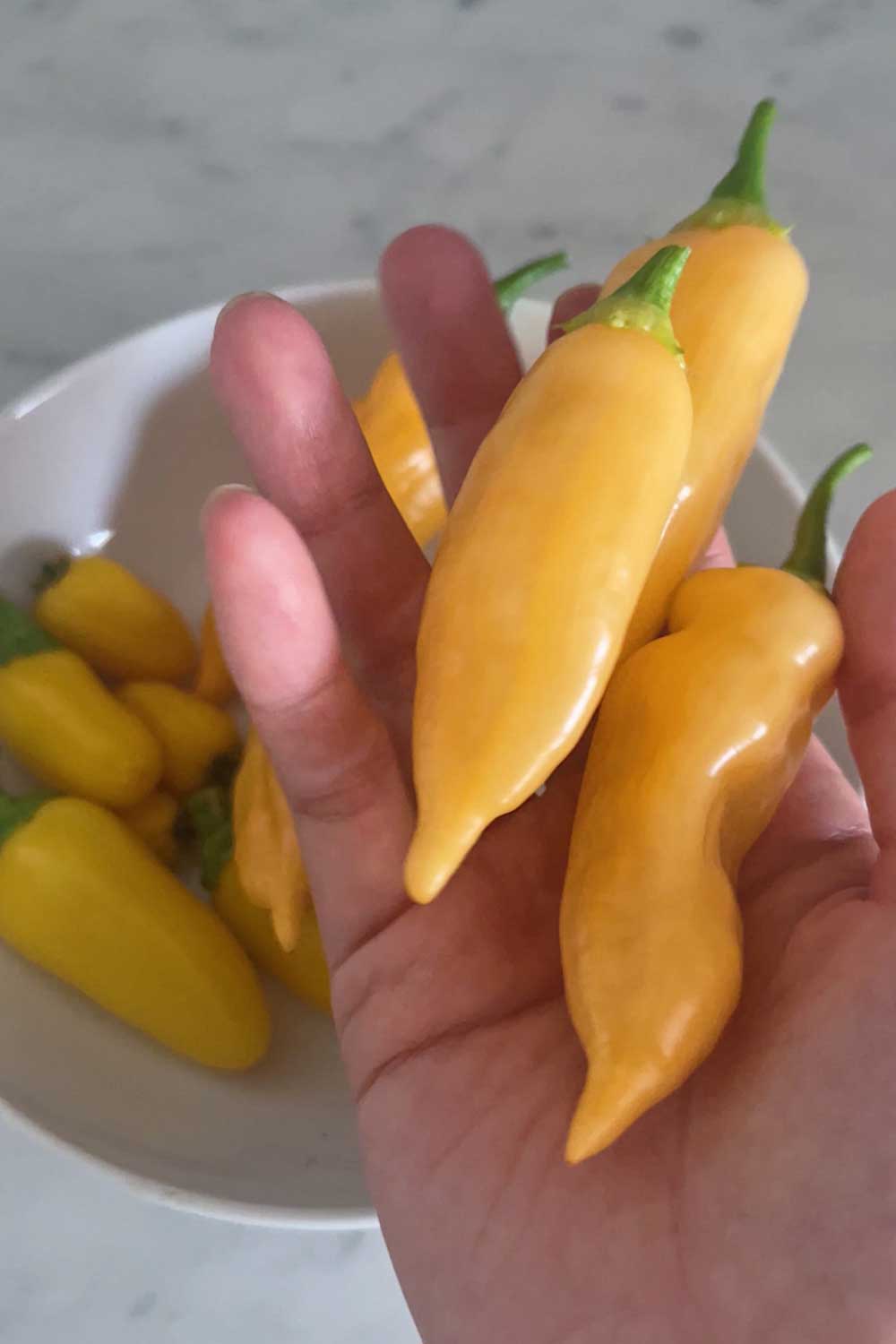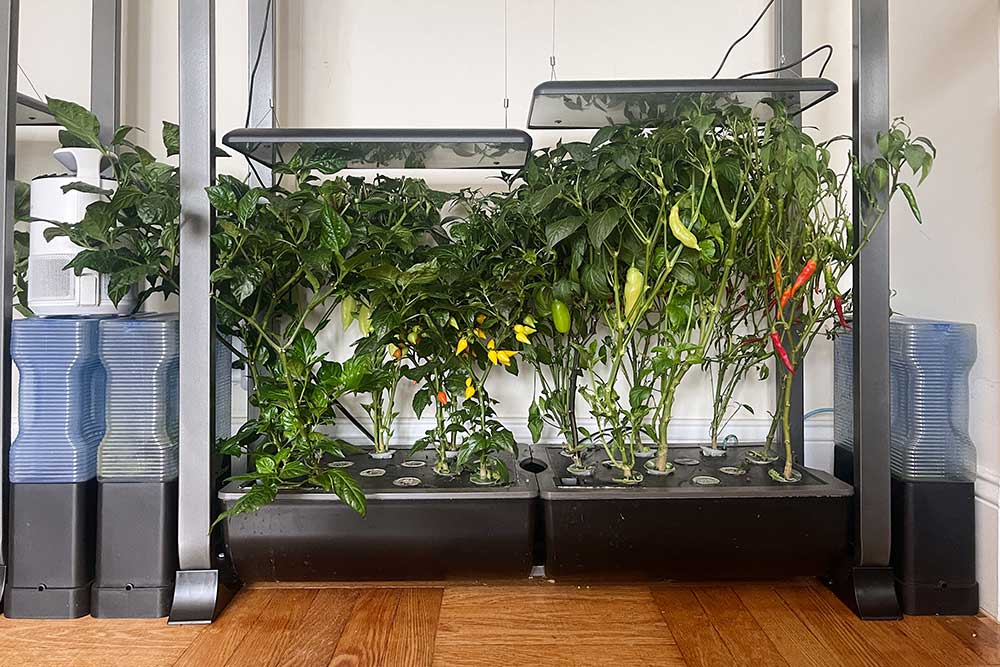
Growing Peppers Indoors
I was talking to a friend the other day who asked me what my favorite type of vegetable to grow is.
“Eggplants”, I said.
“Hm no tomatoes”
“Well.. herbs are most useful, and have the highest ROI”
“Actually, it used to be peppers”
It turns out, I didn’t really have an easy answer.
I like experimenting and growing every kind of vegetable indoors.
But for a long time, peppers were my favorite hydroponic vegetable to grow.
There are SO many varieties of hot and sweet peppers – most of which you can’t find at the grocery store.
To get your hands on them, you’ll need to grow them yourself.
And peppers can be quite finicky (hot peppers especially), so growing them in a controlled hydroponic environment tends to give better results.
In fact, some people say hot peppers grown hydroponically taste hotter than those grown in soil!
If you’re just getting started with indoor gardening and want to grow peppers, I have some recommendations.
Here are my picks for the best peppers to grow in an Aerogarden or similar indoor garden system.
Read more: My Complete Guide to Growing Peppers Indoors
Best Peppers to Grow in Aerogarden
Biquinho Chile Pepper
1,000 – 2,000 Scoville Heat Units
Biquinhos produce tiny teardrop-shaped sweet peppers
Biquinho peppers are a unique looking ornamental pepper plant.
They produce ‘bird beak’ shaped tiny peppers in either red or yellow, and taste sweet.
The tiny colorful peppers have just the mildest bit of heat – they remind me a lot of habanadas.
In Brazil, where they’re from, biquinho pepperss are grown in every backyard.
They’re typically pickled in cachaça to create a zesty pepper condiment.
Pickled biquinhos make the perfect garnish for cheeseboards, pizzas and cocktails!
Shop seeds:
Botanical Interests, True Leaf Market, West Coast Seeds, Amazon
Difficulty scale: beginner friendly!
Recommended hydroponic gardens:
NuMex Lemon Spice Jalapeno
2,500 – 5,000 Scoville Heat Units
zesty jalapenos that turn from green to yellow!
Why grow regular jalapeños when you can grow these bright yellow, lemon-y ones?
These sunny jalapeños round out their heat with a citrus twist for the perfect tangy heat combination.
Use in any recipe that calls for a regular jalapeño – I like them in guac and zhoug!
Shop seeds:
Difficulty scale: medium
Recommended hydroponic gardens:
Cayenne Chili Pepper
30,000 – 50,000 Scoville Heat Units
cayenne peppers are super versatile – grind them into flakes, turn them into chili oil, pickle or ferment into hot sauce!
For those who like the heat!
Cayenne peppers deliver a punchy pack of heat and lots of spicy flavor.
Shaped like 4″ skinny pencils, cayenne peppers are your classic hot pepper.
Grind them into red pepper flakes, pickle them or thinly slice them to add heat to pasta sauces, salad dressings and chilis.
Shop seeds:
Difficulty scale: Hard
Recommended hydroponic gardens:
Chili de Arbol
15,000 – 30,000 Scoville Heat Units
Chili de Arbol peppers look just like cayenne peppers.. but have a nice smokey flavor!
Chili de Arbols originated in Mexico and produce medium hot peppers.
Each pepper is bright red, long and thin.
Actually, Chili de Arbol peppers look very similar to cayennes, but with an earthy smokiness to them.
I think of it like.. tequila vs mezcal.
If you like heat tempered with bold smoky flavor, you’ll love these!
Shop seeds:
Difficulty scale: Hard
Recommended hydroponic gardens:
Thai Chili
50,000 – 250,000 Scoville Heat Units
a huge haul of thai birds eye chilis
Thai chilis are a common hot pepper found in Thailand and all over Southeast Asia.
They’re tiny, but pack quite a bit of heat!
If you like Thai food or spicy southeast Asian food, you have to grow these.
They have a really intense spicy but sweet flavor that makes them great for stir frys, curries, marinades and salads.
And they’re incredibly easy to grow!
Compact bushes form bundles of green and red Thai peppers all over the place. I just let the bushes grow wild and harvest 1/2 a pound every month.
Shop seeds:
Botanical Interests, True Leaf Market, Renee’s Garden, Park Seed & Amazon
Difficulty scale: beginner friendly!
Recommended hydroponic gardens:
Read more: How to Grow Thai Chilis
Korean Pepper
1,500 – 10,000 Scoville Heat Units
crunchy Korean peppers can be eaten green or red
Another spicy Asian food staple!
Korean peppers are the backbone behind gochugaru, kimchi, soondubu and lots of my other favorite Korean dishes.
They’re small hot chilies, very similar to Thai chilis in their growth pattern.
Try growing these if you like heat but don’t have a lot of space!
Shop seeds:
Difficulty scale: beginner friendly!
Recommended hydroponic gardens:
Read more: How to Grow Korean Peppers
Habanada Pepper
0 Scoville Heat Units
despite looking fiery, habanada peppers are heatless habaneros!
Habanadas are fun zesty little peppers bred to have all the flavor of a habanero… without the heat!
These sweet peppers are entirely heatless and make for great snacking peppers. Even the seeds are sweet and flavorful, so no need to remove when using!
I really enjoyed growing this exotic pepper inside my apartment.
The plants can get quite bushy (~3 feet tall) and produce tons of small 2-3 inch tangerine colored fruit. I had so much production I didn’t know what to do with them all!
Then I learned that at the 2014 Culinary Breeding Network Variety Showcase, the fruit was turned into a sherbet!
Shop seeds:
Difficulty scale: Medium
Recommended hydroponic gardens:
Read more: How to Grow Habanada Peppers
Sugar Rush Peach Pepper
80,000 – 150,000 Scoville Heat Units
peachy punchy sugar rush peppers inside my Farms
Sugar rush peach peppers are a fun combination of fruity flavor and zippy heat.
The long peach colored fruit has lots of sweet tropical flavor notes. But if you use the seeds, you’ll also be hit with smoky complex heat.
Bred by a hot pepper grower in Wales, this fun hot pepper was a happy accident created after bees unknowingly cross pollinated several different varieties of Aji peppers.
The nice thing is these are also pretty productive plants!
Sugar rush peach pepper plants produce high yields relatively early.
Shop seeds:
Difficulty scale: Hard
Recommended hydroponic gardens:
Follow me on
